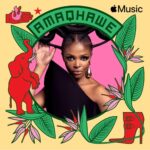Are you planning to go to Zanzibar now or in the future? Whether it’s just for a short visit, for a business trip or even for a long time stay, this part of the African continent is absolutely hospitable. With always smiling faces, East Africans will make you feel at home, treating you with kindness and gentleness. If not for the value you add to their countries’ GDP, I would confidently say that humanity is a value among the people of East Africa.
When visiting such hosts, isn’t it only helpful to know a bit of their local language? Furthermore, you will impress them; make them want to interact with you more while getting amused by your rib-tickling accent. Luckily, East Africa shares a common language, Swahili!
Jambo/Habari
Greetings are key in any kind of communication. “Jambo” or “Habari” are Swahili words meaning “Hello”. Usually, Habari is used when greeting people of an older age or same level and status and they can reply with the word “Salama”. On the other hand, “Jambo” is used to greet young people and they can reply with the word “Jambo”. It is very Important to greet your elders with the word “Shikamoo” as it shows more respect and they can reply with the word “Marhaba”. When you greet someone in their local dialect, it is not only courteous but also helps warm their hearts to open up to you.
Ahsante
Thank you. You are probably going to receive an act of kindness, a gift or even some service from your local hosts. Say “ahsante” or even better, “ahsante sana”; meaning “thank you very much”. It is a polite expression showing you acknowledge what they have done for you.
Karibu
This is to mean “welcome”. So, if someone tells you “ahsante” (remember this means thank you), then tell them “karibu”. And they will be in awe of your Swahili knowledge.
Pole
This simply means “am sorry” or just “sorry”. It comes in handy especially in the event of a misfortune or an accident. However small it may be, such as tripping on someone or dropping their item, say “pole”. They will appreciate that you feel sorry about it.
Tafadhali
When asking for something or for assistance, we usually start by saying “please”. For instance, “please show me the way”. The Swahili word for “please” is “tafadhali”, which is also used to mean “excuse me”.
Jina langu ni…
You are in one of the East African countries. Your hosts don’t know you and they will for sure ask for your name. You just go like, “jina langu ni Josephine”. Meaning, “My name is Josephine”.
Jina lako ni nani?
Once you tell your name, continue the conversation and ask them what their name is. “Jina lako ni nani?” to mean, “What is your name?”
Chakula
Oh, everyone’s favorite. “Food”. You hear this word “chakula” and you know it’s time to fill up the bellies. Don’t we all look forward to that? Remember, your safari will be more memorable if you try as many local delicacies as possible. “Chakula” is one of the uniting factors among the East Africans.
Hatari
You may be taking a stroll or enjoying game viewing in some of East Africa’s best tourist destinations; when you notice signs written “Hatari!! This means there is impending “Danger!!” and that you should be cautious about your movements. Do not ignore, take caution.
Kwaheri
Every journey has a beginning and an end. After a fantastic stay with your hosts, it is time to depart. Can be heart breaking, but you have to leave anyway. Say “goodbye”. In Swahili, say “kwaheri”.
In Jovago, we believe your stay in East Africa will be one of a lifetime. And that these basic Swahili words will make your interactions easier. As the good tourist you are, take initiative to learn as much of the local dialects as possible. When you visit again, they will come in handy.












